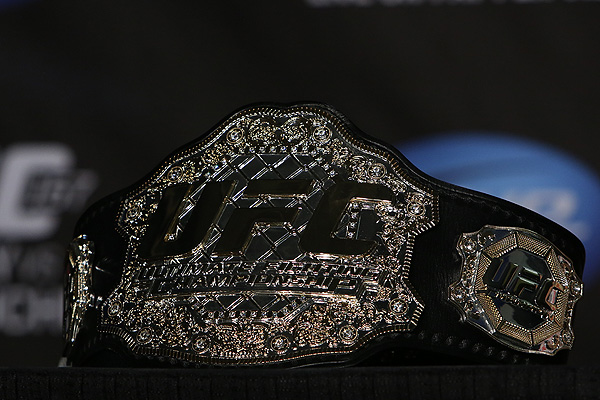The UFC has been in court since 2014 regarding a class action lawsuit labeled Le v. Zuffa (UFC). Just this week, a judge has certified this as a class-action lawsuit. This is to say that the courts find the group of people challenging Zuffa and the UFC to have a case.
Class-Action Lawsuit – Anticompetitive
The lawsuit alleges that the UFC used anticompetitive behavior to create monopsony-like conditions for MMA fighters with exclusive contracts which were nearly perpetual, plus buying out and closing other MMA promotions. These acts created conditions so that athletes could not get competitive pay in other organizations.
There is also an argument being made that the UFC times fight offers through the time placement of fights that coerced athletes into renewing contracts early or extended contracts.
According to the lawsuit, the UFC had a devastating effect on a fighter, who is an independent contractor, to control their career and earn fair pay for their work. According to the court, the UFC used their dominance and power in MMA to suppress fighter pay. Fighters were unable to measure or earn their fair market value, as there was no free market for them to test free agency. There was no real competition to the UFC because of their direct actions.
The group, or “class”, of people who are challenging the UFC are fighters who competed in the organization from Dec. 2010 to Jun. 2017. There is a secondary ‘identity class’ that pertains to fighters who had their likeness used for merchandise, video games, and other items such as this.
For this time period, this includes 1,200 athletes who are automatically included as plaintiffs in the lawsuit. The UFC may end up having to pay out $811 million to $1.6 billion to fighters. Fighters have the option to opt-out if they like. However, the most notable athletes leading the charge are Cung Le and Jon Fitch.
If successful, the UFC would also be forced to change the nature of their contract, including time limitations, so they can not hold fighters in perpetuity, similar to other sports.
The UFC is not yet found in wrongdoing. However, this means that the court, according to Judge Boulware, believes that a class-action lawsuit is the correct way forward. It is a massive step in this ongoing case.
According to the documents obtained by Josh Nash of Bloody Elbow:
“Plaintiffs credibly establish that Zuffa systematically acquired, or forced the shutdown of, rival promoters … Defendant’s horizonal acquisitions reinforced their dominance in the input market. These acquisitions consciously eliminated would-be rivals to which fighters might otherwise have switched. This conduct substantially foreclosed competition and had market wide anticompetitive effects without any recognizable procompetitive benefits. The Court agrees with Plaintiffs that Defendant’s willful anticompetitive conduct maintained, or increased, Defendant’s monopsony power. The Court finds that Defendant fails to present any meaningful evidence that these acquisitions were procompetitive or contributed to the development of the industry.”
”The combined effect of the contracts’ restrictive clauses created a situation where Zuffa had the sole power to control a fighter’s ability to make money for the majority of the average fighter’s career. Through these restrictive contracts, Zuffa controlled how much, where, and when fighters could earn compensation by participating in a bout… The Court further finds that these contracts, with their various restrictive clauses, existed throughout the class period and operated to lock up fighters with Zuffa. These contracts therefore restricted fighter mobility and allowed Zuffa to build concentrated power in the market for fighter services.”
“Because Zuffa fighters did not get paid unless they fought, this enabled Zuffa to use various strategies related to the timing, placement, number and opponents of a fighter’s bouts to coerce fighters into renewing their contracts early or extending their contracts in order to earn a paycheck.”
“Court finds that Plaintiffs have established that these forms of anticompetitive conduct, both individually and collectively, along with dominant output market power, allowed Defendant to exercise substantial monopsony power over putative class members in the input market for fighter services. Ultimately, the Court finds, for the purposes of class certification, that Plaintiffs have set forth sufficient evidence that this Scheme amounted to a violation of the antitrust law.”

